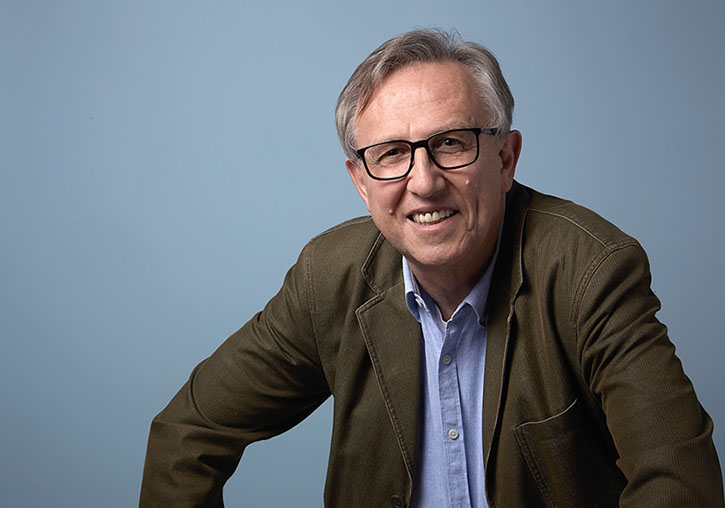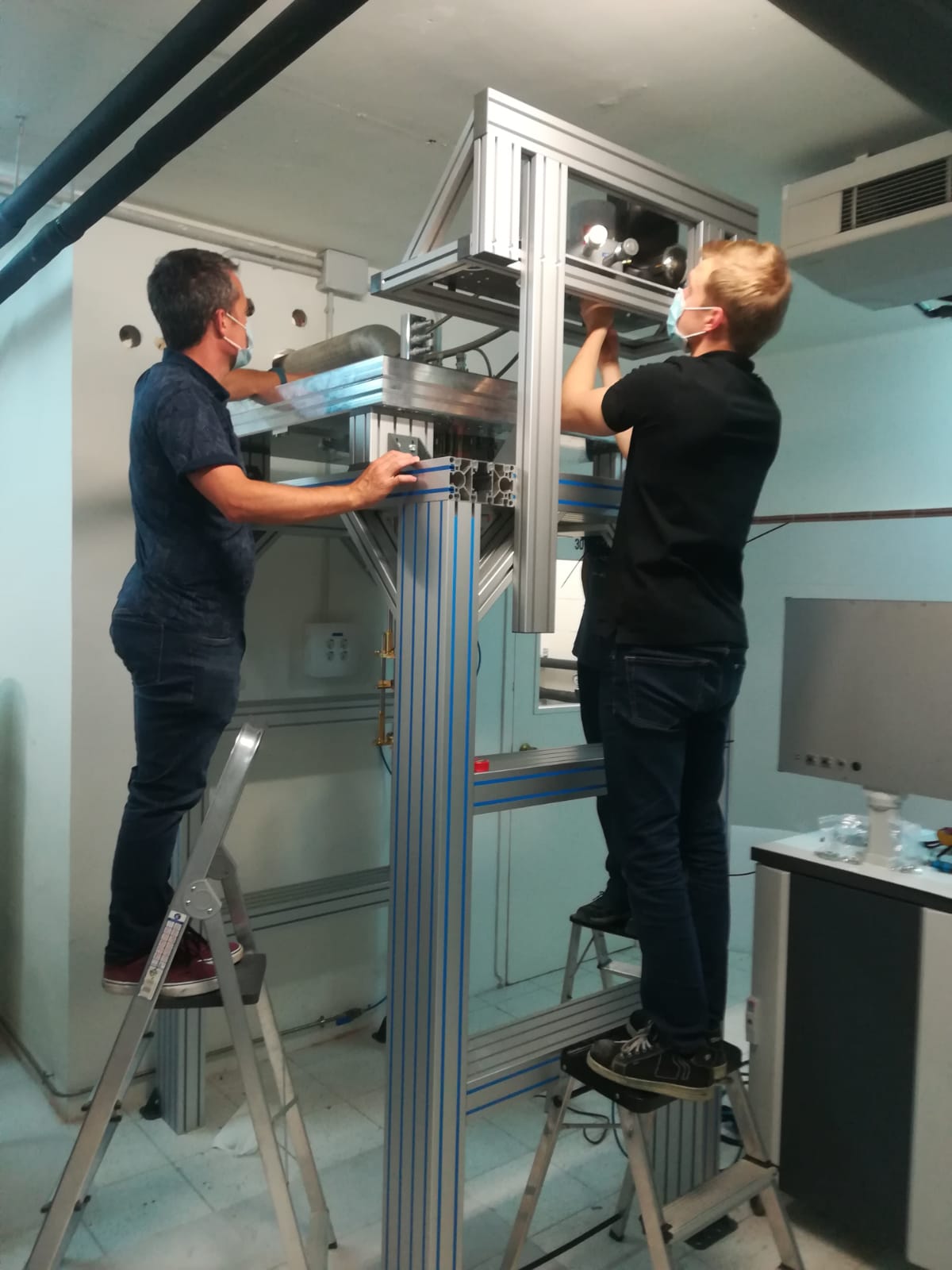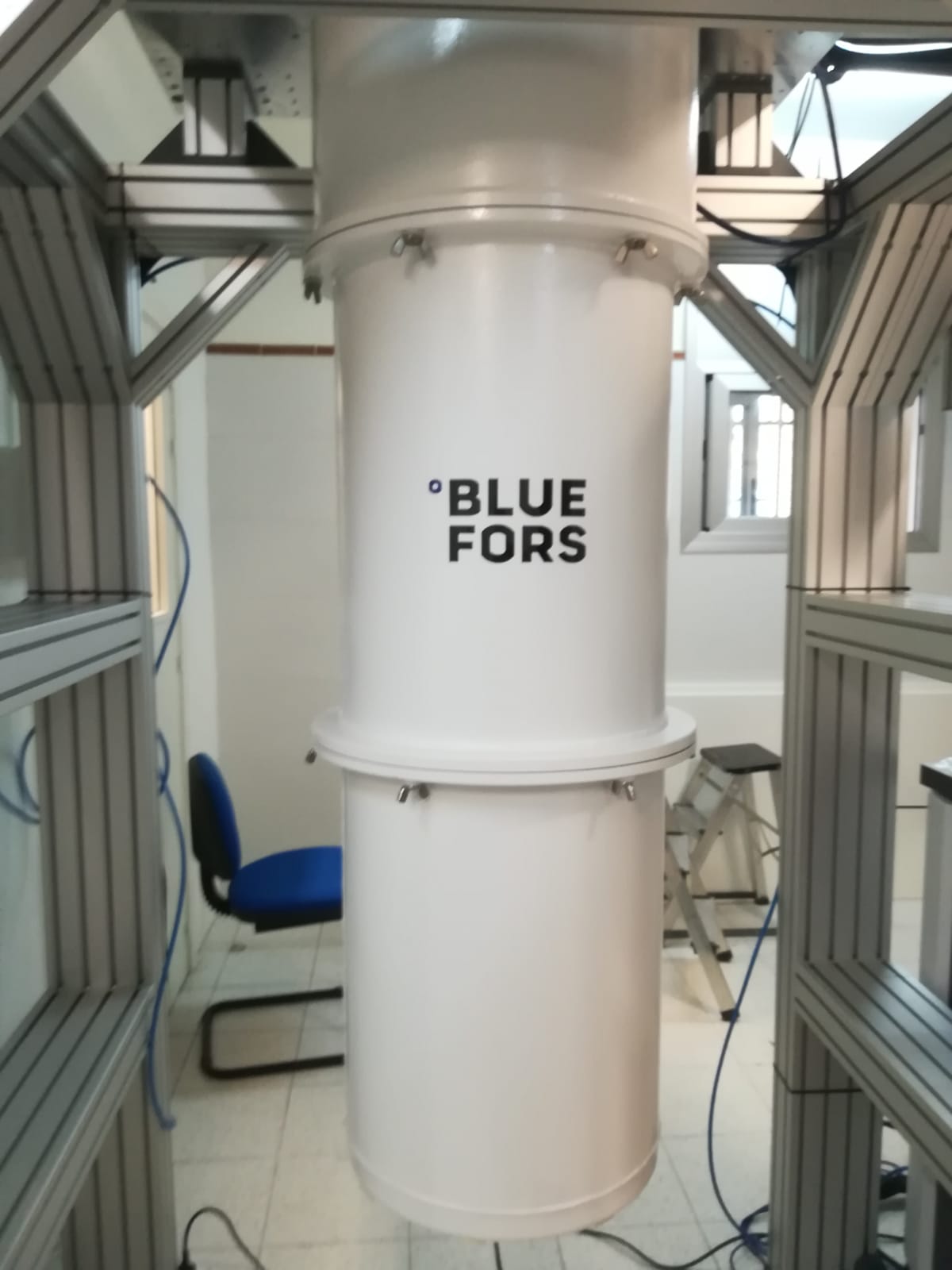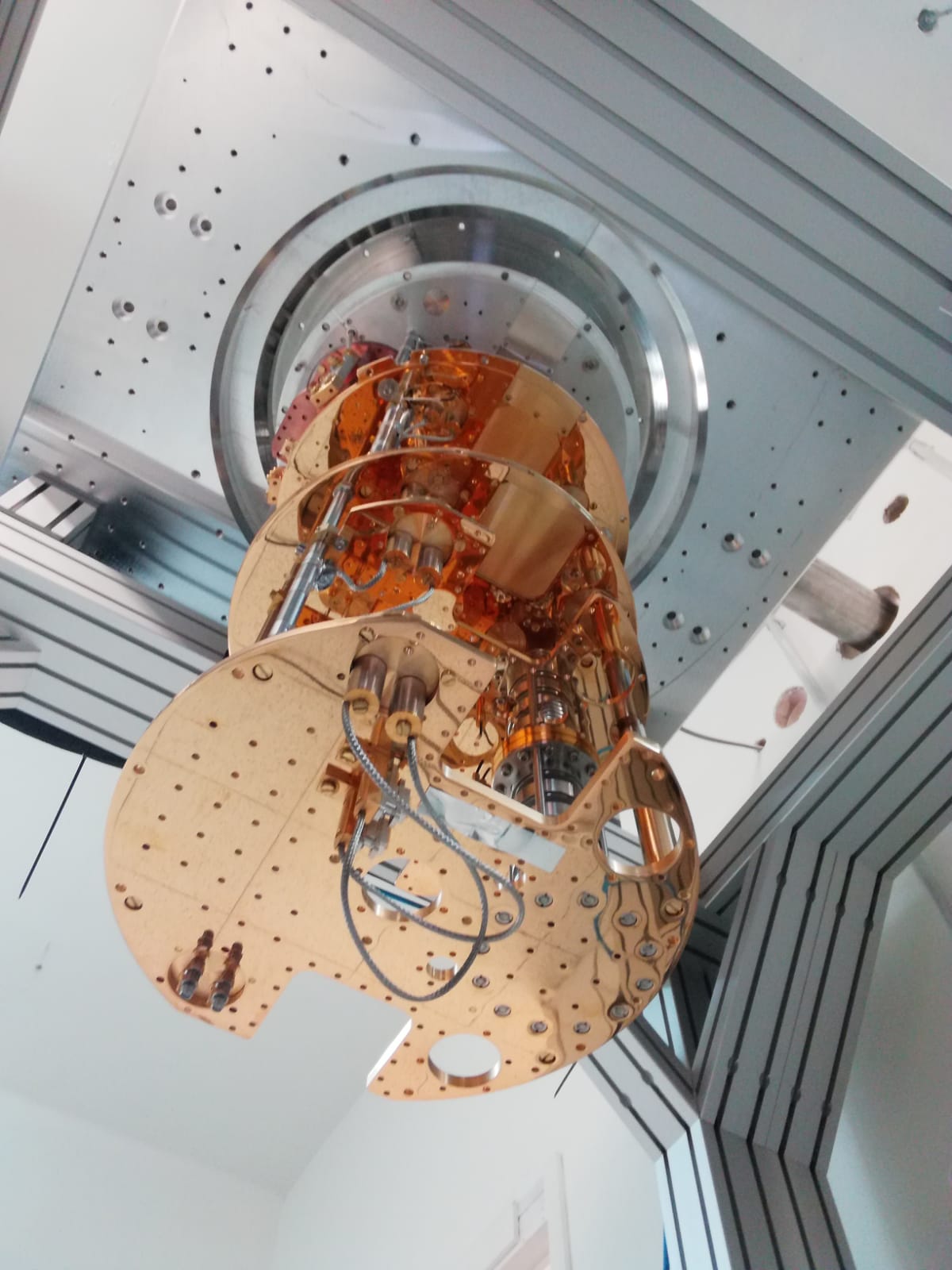22/06/2023
Blueprint of a realistic molecular spin quantum processor
This work has just been published in Phisical Review Applied and featured by Physics! Nice joint work by the University of Parma and INMA, CAB and IFF. Access it at https://physics.aps.org/articles/v16/s90
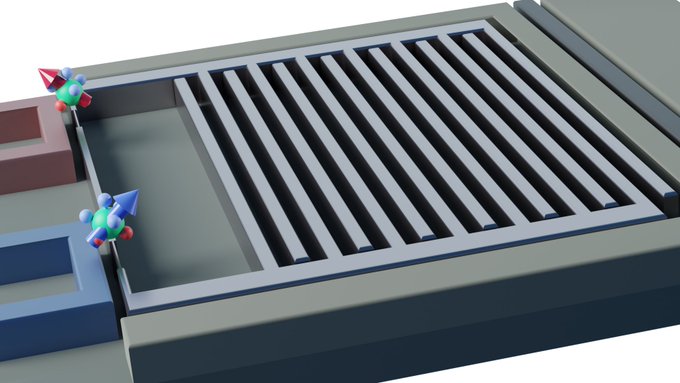
21/06/2023
Interview to Eugenio Coronado, director of ICMol
The director of ICMol from the University of Valencia, Eugenio Coronado, gives in this interview his perspective on the future of quantum technologies and the role of nanoscience: https://www.youtube.com/watch?v=L9g4zlKCGrk
01/06/2023
Roberta Sessoli, from University of Florence, is given an honorary doctorate from the University of Barcelona
On June 6th, the University of Barcelona will give an honorary doctorate to Prof. Roberta Sessoli, from University of Florence. Congratulations Roberta!
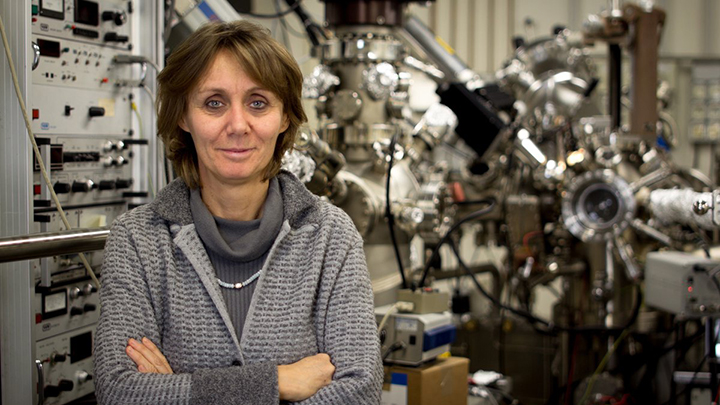
10/11/2022
Alonso Hernández receives the XIX Arquímedes prize
Alonso Hernández, former QMAD member now at the Physics Department of ETH-Zurich, received this week the Spanish XIX Arquímedes prize for his bachelor thesis on optimal control of molecular spin qudits. It was supervised by the researchers Alberto Castro, David Zueco and Fernando Luis. Congrats Alonso!
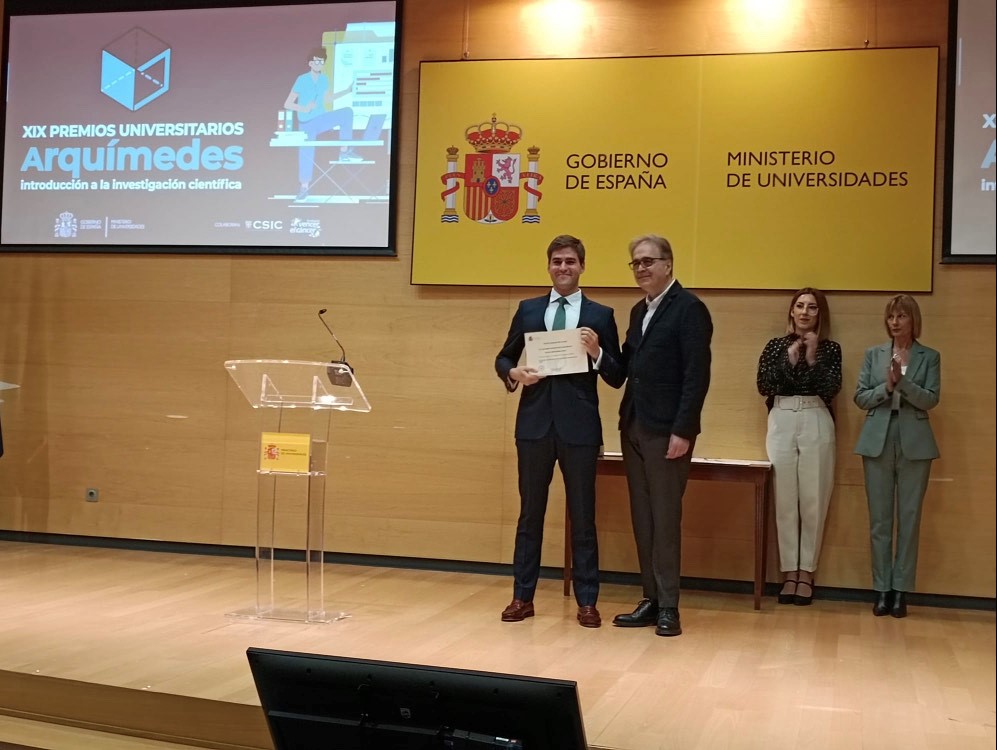
07/10/2022
New FATMOLS publication on Communications Physics
Nuclear spins enter the circuit QED game! Our paper on “High cooperativity coupling to nuclear spins on a c-QED architecture”, published in Communications Physics, is available here. This is a collaboration of INMA, QTEP, CAB, University of Copenhagen, University of Parma and IMDEA Nanociencia.
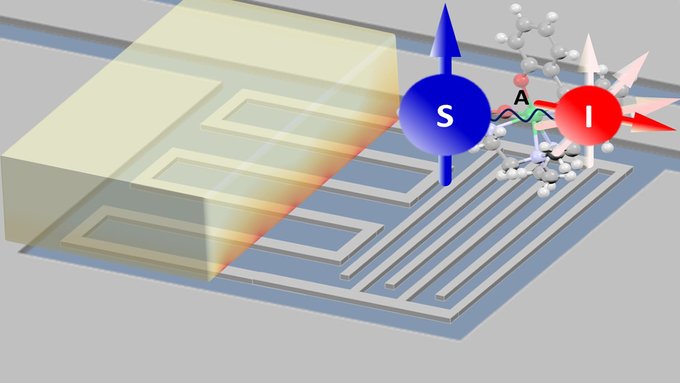
30/08/2022
New coaxial cables for the “cryo-free” dilution refrigerator at INMA
Glad to have the new flexible coaxial cables from Delft Circuits connected to our dilution refrigerator and chips in the INMA / QTEP lab. Fingers crossed while cooling … and nice couplings observed to subpico-L organic radical samples!
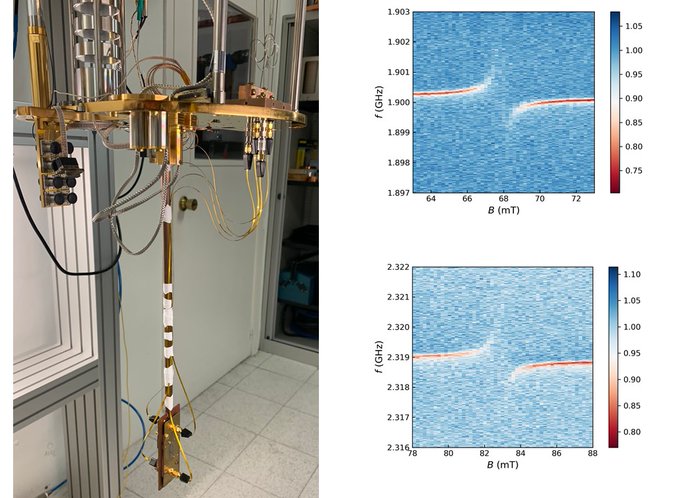
16/07/2022
New FATMOLS publication at Nature Communications
Our partners from University of Florence have just published their study on TbPc2 magnetic molecules as local sensors of superconductivity. The paper is accessible from here.
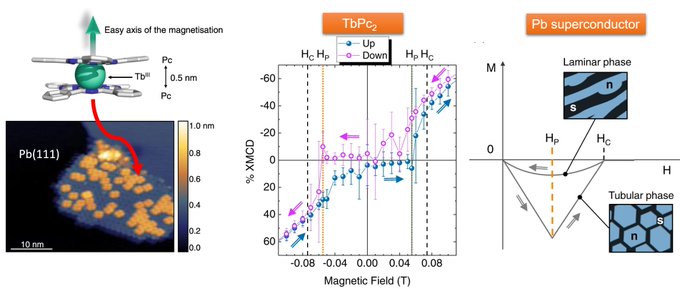
06/07/2022
Entry-level permanent positions available at CSIC
New opening of entry-level permanent positions at CSIC with 10 positions for quantum technologies.
This is a nice opportunity to join QTEP teams that work on different initiatives in the field of quantum technologies, including the hybrid quantum processor developped by INMA and CAB within FATMOLS.
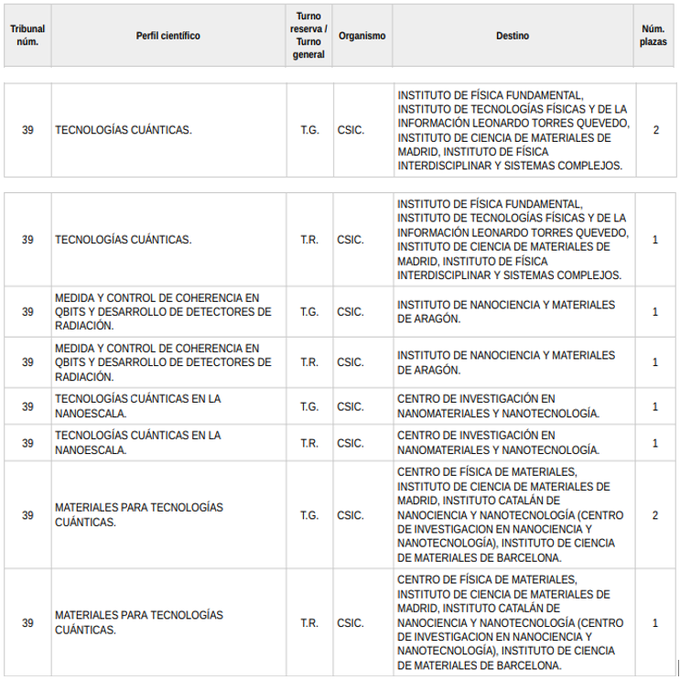
16/06/2022
New FATMOLS publication at Physical Review Applied
The theory developed by our partners from QMAD, Quinfog and QTEP that generalizes dispersive readout to the case of d-dimensional spin qudits has just been published at Physical Review Applied. You can freely access the paper here.
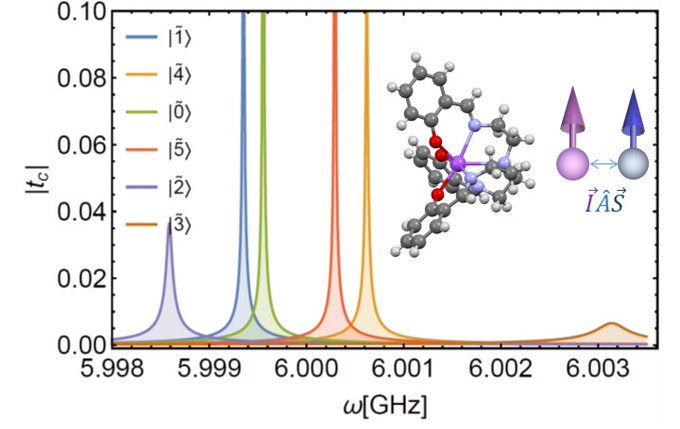
16/06/2022
New FATMOLS publication at Physical Review Applied
Optimal control techniques provide a powerful error mitigation tool for implementing complex gates and protocols in spin qudits. All whys and hows are just published in Physical Review Applied. You can freely access the paper here.
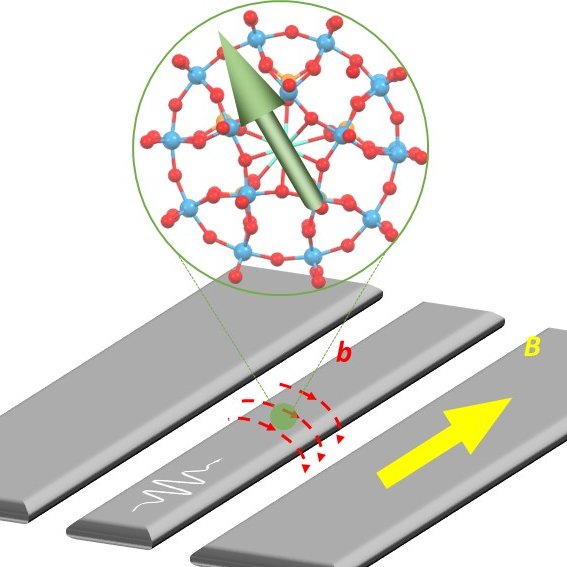
10/06/2022
Alonso Hernández receives the 2021 Arquimedes prize
Alonso Hernández, former QMAD member now at the Physics Department of ETH-Zurich, has been awarded the Spanish Arquimedes prize (first across all areas) for his graduate thesis on error mitigation in molecular spin qudits by optimal control techniques.
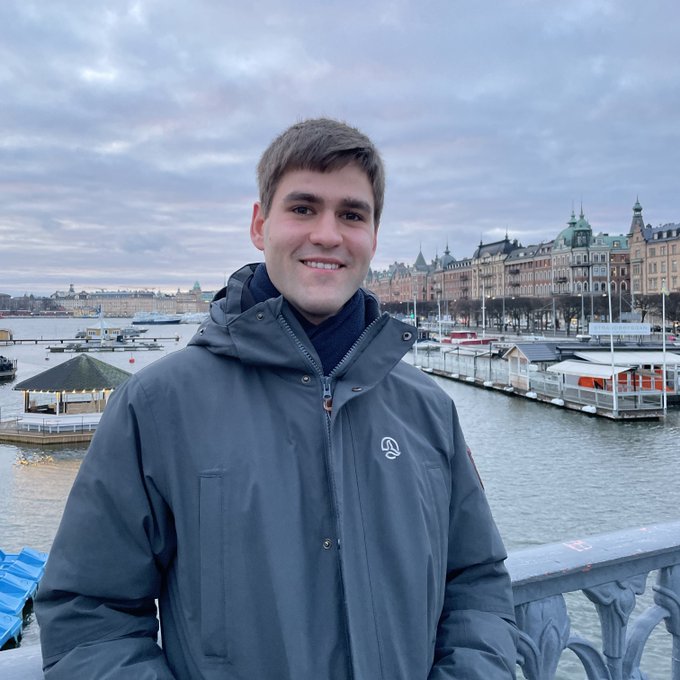
23/05/2022
Gonzalez-Ciamician International Prize awarded to Prof. Roberta Sessoli
Our partner from University of Florence Prof. Roberta Sessoli has been awarded the Gonzalez-Ciamician International Prize. This award is granted by the Spanish Royal Society of Chemistry.
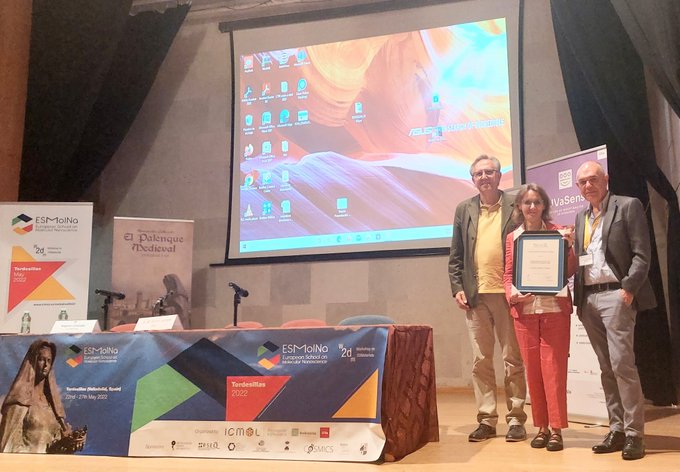
10/02/2022
140,000 € for the development of a quantum processor
The Danish foundation Novo Nordisk Fonden supports with 140,000 € the development of a quantum processor led by our partner Fernando Luis from INMA. In collaboration with the chemistry department of University of Copenhagen and our partners from University of Parma.
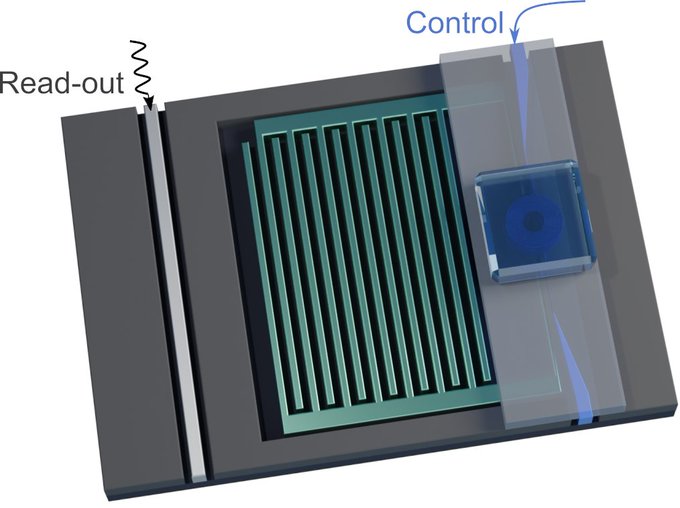
22/12/2021
Eugenio Coronado, on the Forbes Top 50 Awarded Spaniards
Our partner from ICMOL Dr. Eugenio Coronado has been included on the Forbes Top 50 Awarded Spaniards list.

The complete list can be found here: https://forbes.es/forbes-top-50-espanoles-mas-premiados/
15/12/2021
María José Martínez-Perez receives RSEF Young Experimental Researcher 2020 award
María José Martínez-Pérez, researcher from our group QMAD had received the Young Experimental Researcher 2020 award given by RSEF–Fundación BBVA, by highlighting in his speech the future role of quantum technologies.
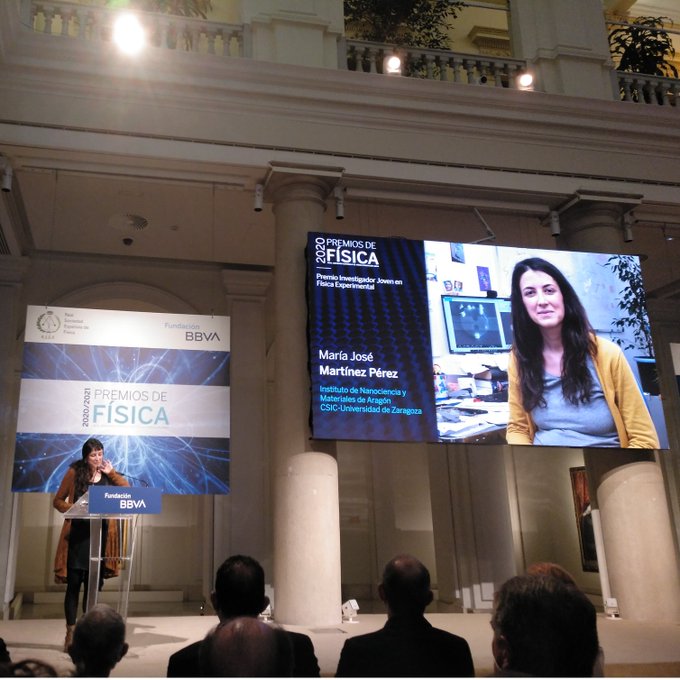
In her own words: “Quantum mechanics has proposed paradoxes that seemed like a hobby, and it has become the next technological revolution”
Congratulations Pepa!
20/10/2021
NEST Prize 2020 to Dr. Giulia Serrano
Dr. Giulia Serrano, of the UGO SCHIFF Chemistry Department of the University of Florence, has won the NEST 2020 Award for nanoscience for her work published on Nature Materials entitled “Quantum dynamics of a single molecule magnet on superconducting Pb (111)“.

Congratulations to the winner! She will receive from Nipon Gases, sponsor of this award, a cash prize of 5000 €.
07/10/2021
Galileo Galilei Prize awarded to Florence team leader Roberta Sessoli
Our partner from University of Florence Prof. Roberta Sessoli has been awarded the Galileo Galilei Prize on its 16th edition. The award is granted by the Italian Rotatory Clubs and this year it is dedicated to chemical sciences.
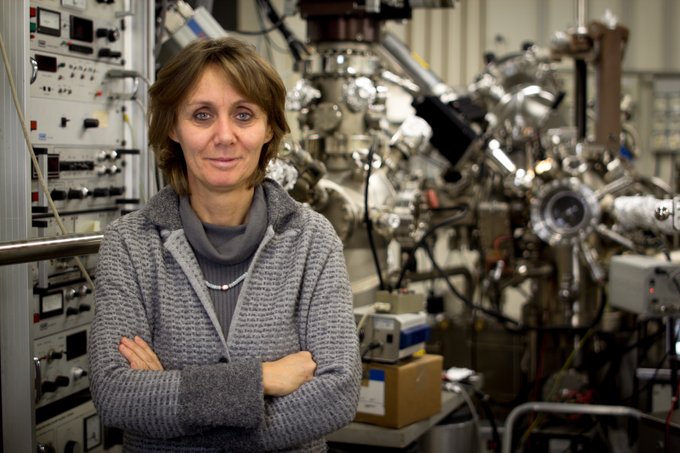
Her name was selected by a jury of foreign scholars appointed by the rector of the University of Pisa and composed of Gilberte Chambaud, David Cole-Hamilton, Avelino Corma, and Ada Yonath. The prixe was awarded to her in a ceremony in the lecture hall of the Pisa University on October 2nd.
Prof. Sessoli research is focused on single molecule magnets, low-dimensional magnetism, their interaction with electromagnetic radiation and their aplications to quantum technologies and spintronics. Within FATMOLS, she coordinates WP5, which focuses on studying coherence of molecular spin qubits deposited on solid substrates.
30/06/2021
CSIC PhD student Sergio Martínez-Losa becomes our first IBM Qiskit developer
Sergio succesfully passed the exam that certifies him as a developer in the IBM open source software development kit. Qiskit SDK, based on the Python programming language, allows to create and execute quantum algorithms on IBM quantum computers and simulations.
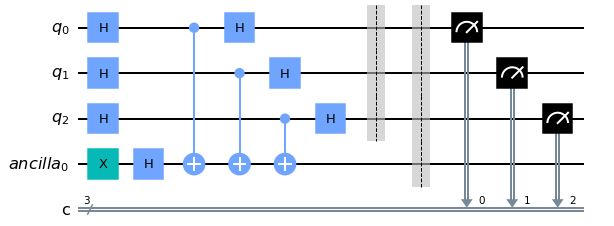
In addition, the team comprised of Marcos Rubín, Victor Rollano García and Sergio Martinez-Losa reached the 1st position in the last Qiskit Challenge celebrated in May 2021. The full ranking is available in Qiskit github page.
14/06/2021
A perspective on scaling up quantum computation with molecular spins
Our new publication is front cover in Applied Physics Letters.
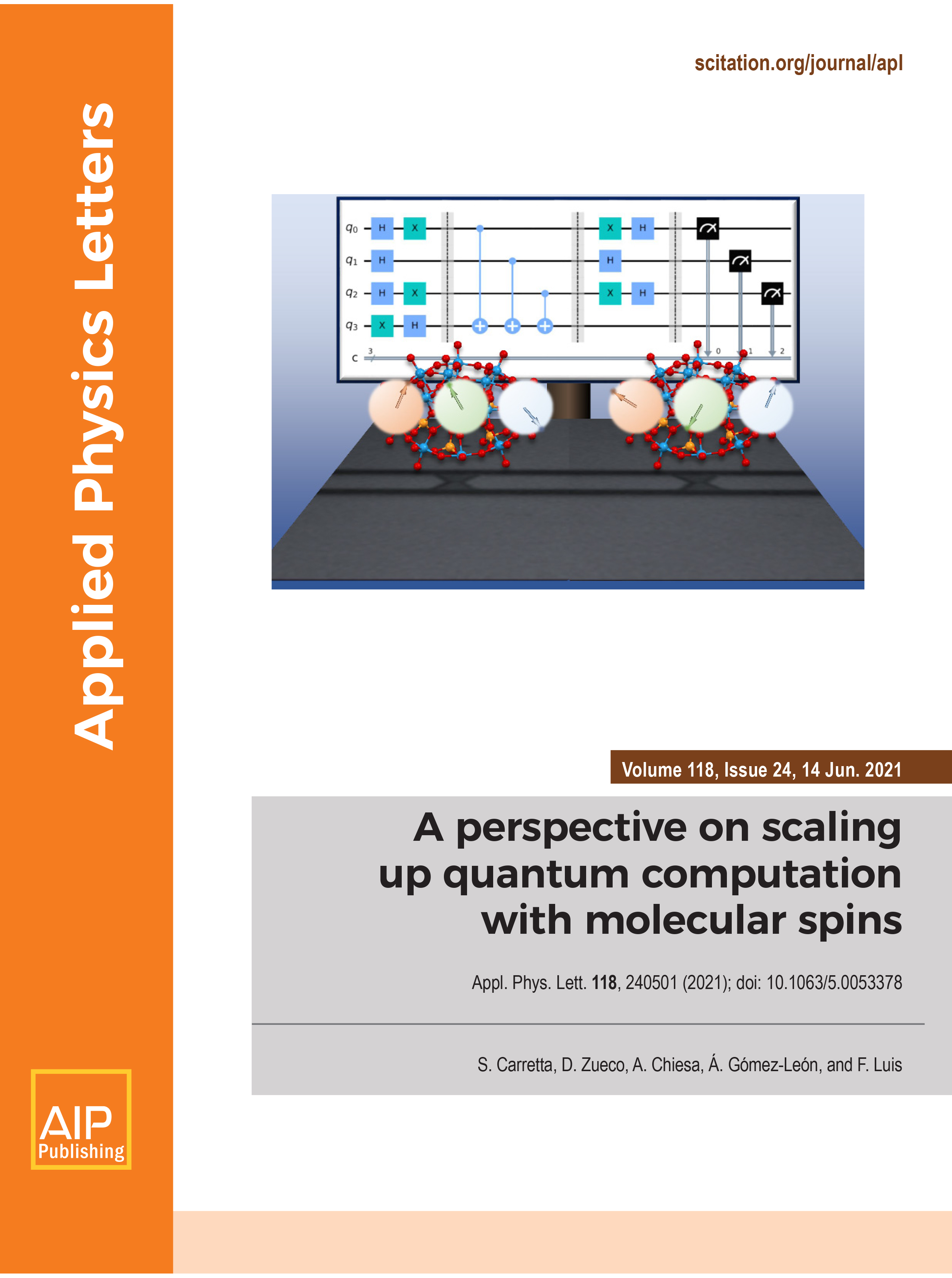
The work explores how artificial magnetic molecules can contribute to progressing towards large scale quantum computation. Our approach will boost the scalability of quantum computers based on molecular spins.
You can read it here.
17/05/2021
Three postdoctoral contracts available at INMA
Would you like to join our team and contribute to build a scalable hybrid quantum computer and explore its applications? Have a look at our openings section here.
17/05/2021
ICE-6 best poster award to Nacho Gimeno (CSIC-INMA)
Nacho Gimeno, PhD student from our CSIC partner, has been awarded the 1st poster prize of the 6th Quantum Information in Spain (ICE6) conference for his work on 4-qubit molecular spin processors. Take a look at the poster below. The award was funded by Entropy
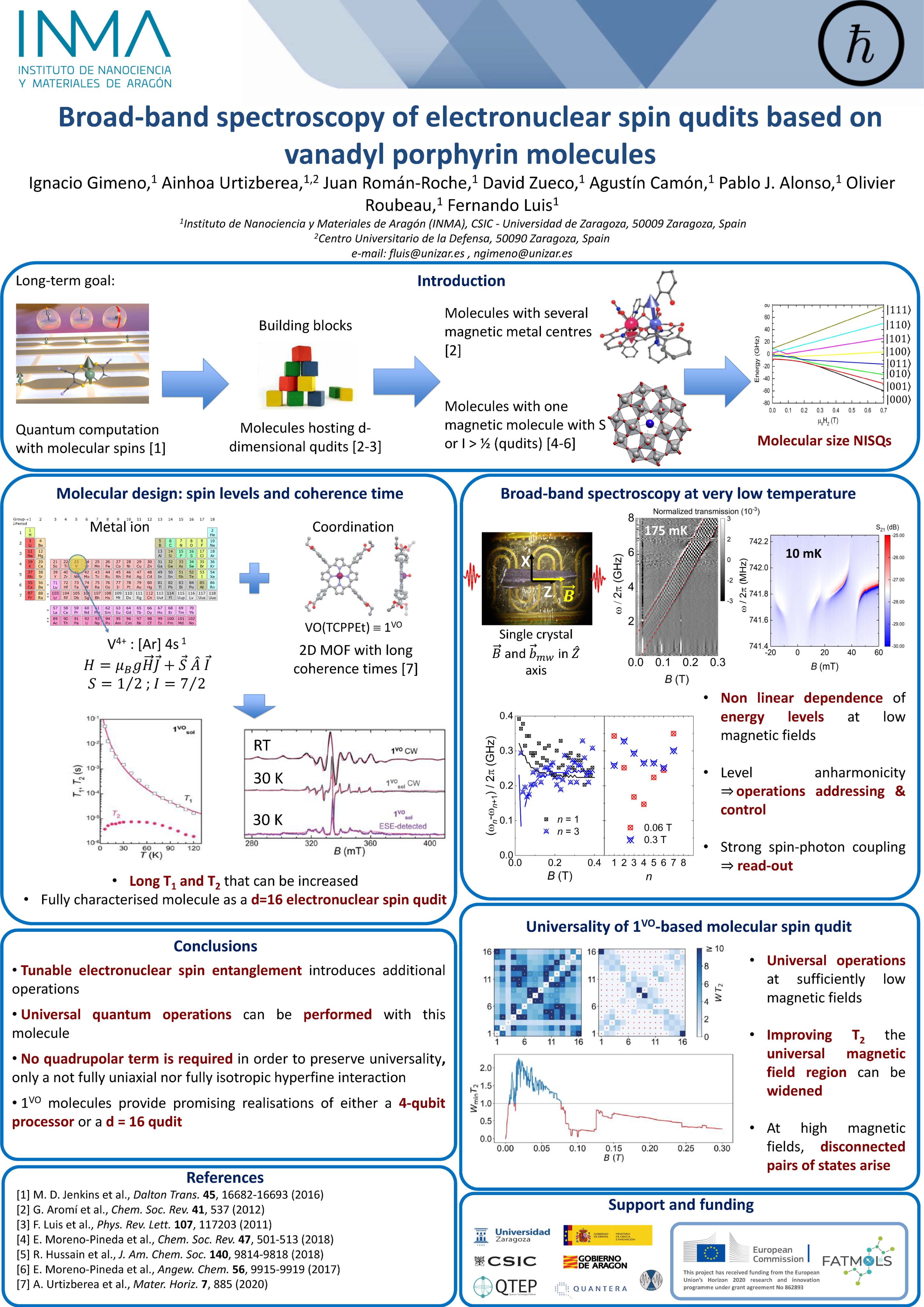
25/03/2021
Broad-band spectroscopy of a vanadyl porphyrin: a model electronuclear spin qudit
Electronuclear spin entanglement allows using a VO-porphyrin molecule as a universal 4-qubit processor. Just published in Chemical Science.
Read it here: 10.1039/d1sc00564b
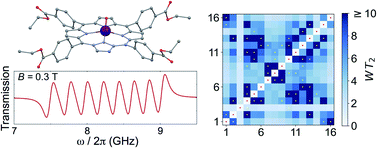
11/03/2021
Quantum Computers and Quantum Supremacy | John Martinis |INMA
On Tuesday 11th March, Prof. John Martinis gave an excellent seminar titled “Quantum Computers and Quantum Supremacy”, organized by INMA. Watch the talk again at INMA’s youtube channel.
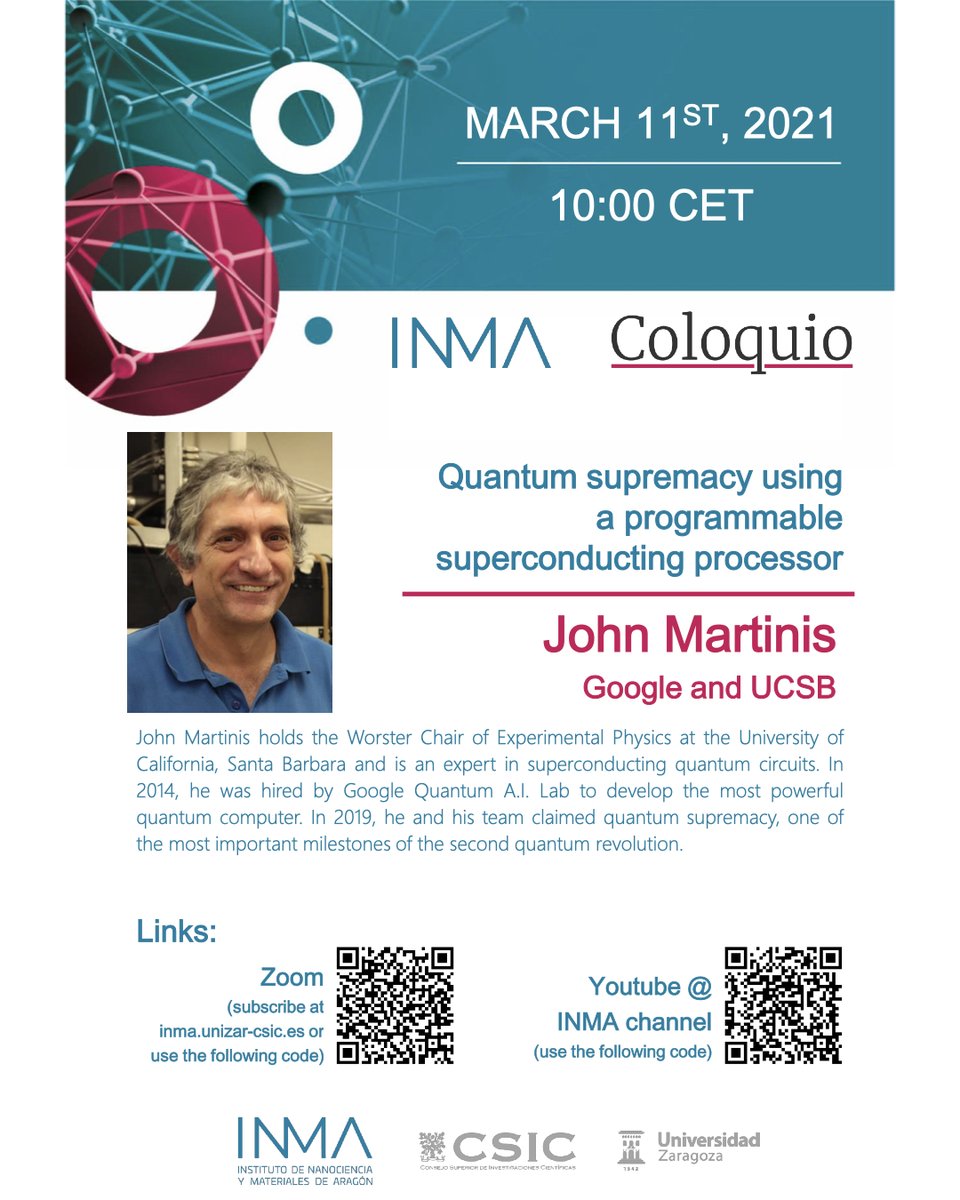
06/03/2021
Chemical design of decoherence-free spin qubits
New FATMOLS publication is hot article in Chemical Science https://doi.org/10.1039/D0SC05856D
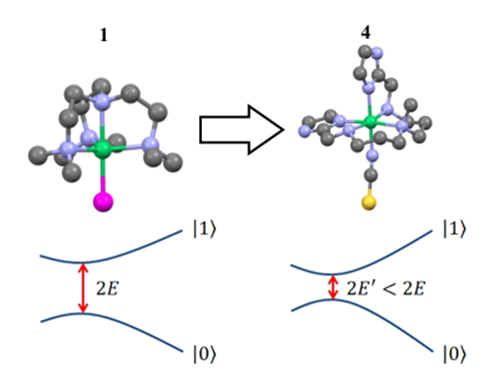
20/11/2020
New FATMOLS publication at Communications Chemistry
Our work on a molecular dimer hosting six addressable spin qubits is now published with Springer Nature in Communications Chemistry. You can freely access the paper here.
Molecular spin processors are promising for quantum computing, but for universal applicability the available computational space needs to be expanded beyond three qubits while retaining the ability to perform universal quantum operations. Here, the authors report dissymetric molecular Gadolinium(III) dimers acting as 6-qubit quantum processors.
11/11/2020
GEFES undergraduate prize to Alonso Hernández
One of the prizes that the Condensed Matter Physics Division-GEFES of the Spanish Physics Society dedicates to support brilliant undergraduate students working under the supervision of GEFES members has been awarded to Alonso Hernández Antón, who will investigate “Quantum error correction in magnetic molecules” under the supervision of David Zueco and Fernando Luis, both of QMAD.
More information at: https://gefes-rsef.org/premios-de-investigacion/
05/10/2020
New “cryo-free” dilution refrigerator installed
The new cryo-free dilution refrigerator of the CSIC-INMA team is operative and has reached 9.2 mK. It will contribute to characterize new superconducting nano-resonators and study its coupling to molecular spin qudits.
19/09/2020
2020 RSEF-BBVA Young Physicist Prize awarded to CSIC team member María José Martínez-Pérez
The announcement was made public on September the 18th by the Spanish Physics Society (RSEF) and the BBVA foundation. The jury highlights her outstanding contributions to develop a new generation of magnetic sensing tools that can open promising avenues for nanomagnetism, molecular nanoscience and quantum technologies.
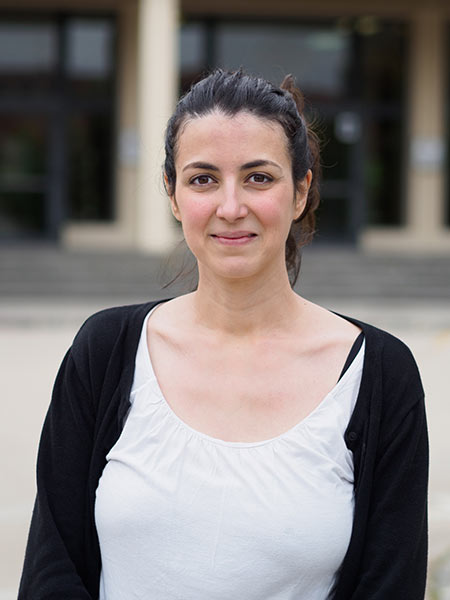
Access the official announcement here.
06/07/2020
Postdoctoral Position in the University of Oxford Physics Department:
This project will explore quantum spin physics in magnetic molecules in collaboration with two EU-funded consortia: FATMOLS (http://fatmols.unizar.es/), which seeks to exploit the properties of molecular magnets to establish modular and scalable molecular components for spin-based quantum technologies; and SPRING (http://www.springfetopen.eu), which is focused on developing and technologically exploiting magnetic degrees of freedom in graphene-related nanostructures. Oxford’s role in both projects is to develop and deploy advanced pulsed electron spin resonance techniques to elucidate the quantum magnetic structures and dynamics in new materials provided by project partners. The research will make extensive use of Oxford’s state-of-the-art Centre for Advanced Electron Spin Resonance (CAESR, caesr-web.chem.ox.ac.uk/ as well as custom-built experimental apparatus for specialised measurements. There will be extensive opportunities for collaboration with project partners around Europe. The closing date for applications is 7 August 2020.
Contact: Arzhang Ardavan (arzhang.ardavan@physics.ox.ac.uk, http://www.arzhang.org) for more details and instructions on how to apply.
20/02/2020
Magnetic molecules and superconductors: novel materials for quantum technologies.
Our colleagues from the University of Florence have made a video explaining their research in which they combine single molecule magnets with superconducting materials trying to control single molecule magnetism via these superconductors and to use single molecule magnets as local probes of the superconducting state.

